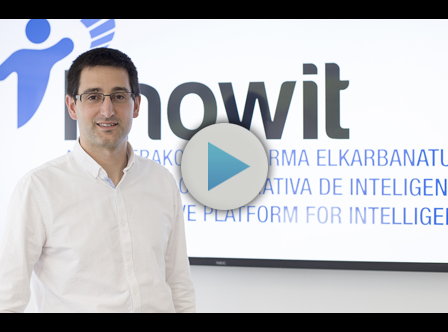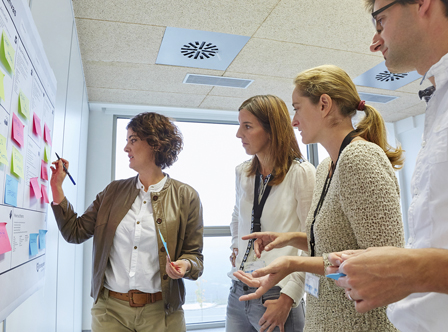THE EXPERT'S VIEW
Innovation is one of the crucial elements to be competitive in a market that is becoming increasingly global and competitive.
The key to a successful new product or business project will depend, to a large extent, on a new way of thinking and acting based on what is an essential concept in an innovation process called competitive intelligence.
Whenever Competitive Intelligence (CI) is implemented it means that programmes must run continuously to compile, select, process, analyse and distribute any information that allows a company or an organisation to anticipate changes, pre-empt new trends, identify business opportunities and detect threats.
It is also an essential part of the innovation process because it helps to improve decision-making processes and provides orientation and guidance to develop strategic services and products.
CI has evolved significantly in recent years, a fact that has been described in the different versions of the UNE 166.006 standard, Management of R&D&i: Competitive intelligence and technological surveillance system.
In its first version (2006), "Technological Surveillance" was the only term used that focused on technological advances and disregarded other issues that organisations find relevant.
In the 2011 update, however, the term "Competitive Intelligence" was added on to "Technological Surveillance". It did not only take into account technology but also anything linked to the business environment, competitors and the organisation itself.
Work is currently in progress to release a new updated version of the standard in which we expect to find information on how CI has progressed: Network intelligence, collaborative intelligence, Big Data, etc.
The VISIO Conference, moreover, will be holding its seventh edition this year. It is an event that takes place every two years in the Basque Country and provides an international encounter where discussions address Competitive Intelligence and Technological Surveillance (CI/TS) and attracts many professionals to disseminate its application even further.
Leverage for innovation
As already mentioned, CI is closely connected to innovation, a process that is not only in the hands of very large corporations but must be implemented throughout the entire business fabric. In our environment, most companies are SMEs and micro-SMEs that need support to develop innovation programmes, although their size should not be an obstacle hindering innovation.
With gradually more information at their disposal, more companies are showing interest in the CI concept, although integration is not easy to allow it become a systematic, everyday process.
IK4-TEKNIKER offers accompanying solutions connected to innovation management mainly focused on the following areas:
Competitive intelligence/Technological Surveillance
The technology centre is developing systems that help users define and systematise processes of information compilation, analysis and utilisation as a support for decision-making within the innovation process itself.
The main goal is to continuously obtain and systematically analyse any information that is relevant to a company.
In this regard, IK4-TEKNIKER offers the implementation of the CI process through a collaborative tool called Knowit, that allows information to be obtained continuously and analysed systematically.
Close cooperation is required for the he implementation of this platform at a company to ensure correct operation and adaptation to each organisation.
Technological diagnosis
IK4-TEKNIKER provides technological diagnoses at a company and territorial level to incorporate an external vision and define improvement actions whose aim is to enhance competitiveness.
On the one hand, diagnoses linked to a direct company application attempt to identify needs, provide support in the innovation process and activate digitisation plans to enhance competitiveness, upgrade processes and innovate in terms of products and services.
On the other hand, and from a territorial perspective, the ultimate goal is to perform sectorial analyses and other activities related to local development.
All in all, innovation culture and competitive intelligence will eventually become management tools that will allow companies to be successful in terms of development actions.






